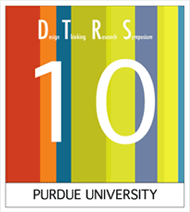Description
For the longest time, design was an activity with no distinction among disciplines. Over time, separate design disciplines had formed their own cultures and their own educational practices. In this paper, we use data from a limited set of design reviews along with a literature survey to conduct a comparative analysis of contemporary reviewing and critiquing cultures in architecture, industrial design and mechanical engineering. We point out differences and communalities, and conclude with a list of the lessons the three disciplines can learn from one another regarding reviewing in the classroom. We dwell especially on one issue that currently differentiates the three cultures: the stress they lay on excitement and fun. We believe that a world in which products of all sorts – from buildings through machines to consumer products – are fun, is a better world to live in.
Keywords
architecture, critique (crit), design, fun, industrial design, mechanical engineering, review, studio, teaching profiles
Date of Verison
January 2014
DOI
10.5703/1288284315933
Recommended Citation
Goldschmidt, Gabriela; Casakin, Hernan; Avidan, Yonni; and Ronen, Ori, "Three studio critiquing cultures: Fun follows function or function follows fun?" (2014). Design Thinking Research Symposium. 2.
https://docs.lib.purdue.edu/dtrs/2014/Comparing/2
Presentation slides
Three studio critiquing cultures: Fun follows function or function follows fun?
For the longest time, design was an activity with no distinction among disciplines. Over time, separate design disciplines had formed their own cultures and their own educational practices. In this paper, we use data from a limited set of design reviews along with a literature survey to conduct a comparative analysis of contemporary reviewing and critiquing cultures in architecture, industrial design and mechanical engineering. We point out differences and communalities, and conclude with a list of the lessons the three disciplines can learn from one another regarding reviewing in the classroom. We dwell especially on one issue that currently differentiates the three cultures: the stress they lay on excitement and fun. We believe that a world in which products of all sorts – from buildings through machines to consumer products – are fun, is a better world to live in.


Comments
This conference presentation was developed into a book chapter that was published in “Analyzing Design Review Conversations,” edited by Robin S. Adams and Junaid A. Siddiqui (2016, Purdue University Press), which can be found here:http://www.thepress.purdue.edu/titles/analyzing-design-review-conversations.